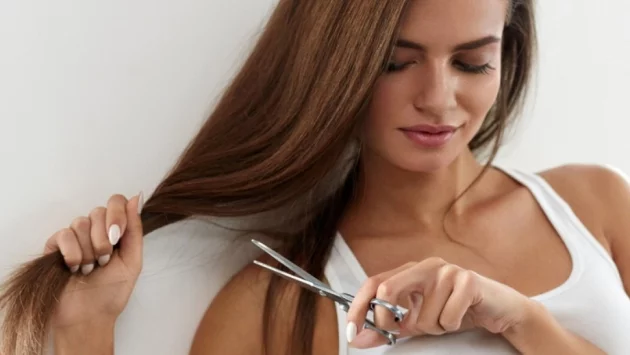How to cut your hair and save money?
We’ve all been there, especially in times when a salon visit isn’t convenient or affordable. You look in the mirror, and that overgrown hair is crying out for a trim. You might be hesitant at first, but trust us, cutting your own hair can be a rewarding and cost-effective venture. In this comprehensive guide, we’ll show you how to achieve salon-worthy results right at home, minus the hefty price tag.
Getting Started
1. Gather Your Tools
First things first, we need the right tools in our arsenal:
- Haircutting scissors
- Clippers
- Comb
- Mirror
- Hair ties or clips
- Towel or cape
- A spray bottle filled with water
2. Set Realistic Expectations
Before we dive in, remember that perfection might not be achieved on your first try. But practice makes perfect! Start with small changes, and as you gain confidence, you can get more adventurous with your cuts.
Choosing Your Hairstyle
3. Select a Style That Suits You
The first step to cutting your hair is choosing a style that complements your face shape and hair type. Think about what you want to achieve – a simple trim, bangs, layers, or a complete makeover?
4. Research and Visualize
Look up pictures of your chosen hairstyle from different angles. This will give you a better idea of what you’re aiming for and help you visualize the process.
Preparation
5. Wash and Dry Your Hair
Before you begin cutting, it’s essential to have clean, dry hair. This ensures that your hair is at its natural state, making it easier to work with.
6. Put on an Old Shirt
Trust us; hair clippings have a knack for finding their way into your clothes. Put on an old shirt or drape a towel over your shoulders to protect your outfit.
The Cutting Process
7. Start Small
When you’re just beginning, it’s best to trim a small amount at a time. You can always cut more, but you can’t put hair back!
8. Create Sections
Divide your hair into manageable sections. Start with the bottom layer and work your way up. Use hair ties or clips to secure the sections you’re not working on.
9. Cutting Bangs
If you’re cutting bangs, remember to cut them longer than your desired length at first. You can always go shorter if needed.
10. Cutting the Length
For the length, use your fingers as a guide, and cut in a straight line. Make sure to check the length from time to time.
11. Trimming the Ends
To tidy up the ends, point-cut with scissors instead of cutting straight across. This gives a softer and more natural look.
Finishing Touches
12. Styling
After you’ve cut your hair, style it as you usually would to see the results more clearly.
13. Evaluate and Adjust
Take a good look in the mirror. Are there any uneven spots or areas that need fixing? Make the necessary adjustments.
Cleaning Up
14. Cleanup Time
Time to clean up the mess you’ve created. A vacuum or a handheld broom can be your best friends at this stage.
Aftercare
15. Proper Care
Maintain your hair’s health by using quality shampoos and conditioners. You can also apply hair masks for added nourishment.
In Closing
Cutting your own hair is an art that requires practice, but with the right tools and guidance, it’s entirely doable. Remember, it’s about learning and improving. So, embrace the journey, and over time, you’ll become your own personal hairstylist.
We hope this guide has inspired you to embark on your DIY hair cutting adventure. Feel free to reach out to us if you have any questions or need more tips. Happy cutting!
FAQs
1. Is it really possible to cut your own hair at home?
Absolutely! With the right tools, preparation, and patience, anyone can achieve a decent DIY haircut.
2. What’s the most common mistake people make when cutting their own hair?
One common mistake is cutting too much at once. Start small, and you can always trim more if needed.
3. How can I fix a bad DIY haircut?
If you’re unhappy with the results, seek professional help to rectify the situation. In the meantime, embrace headbands, hats, and scarves!
4. Can I cut my own long hair, or is this guide mainly for short haircuts?
This guide is suitable for all hair lengths. The techniques may vary, but the principles remain the same.
5. Should I invest in professional hair-cutting scissors, or are regular scissors okay?
Investing in proper haircutting scissors is ideal, as they are designed for the task and provide cleaner cuts. Regular scissors can damage your hair.

